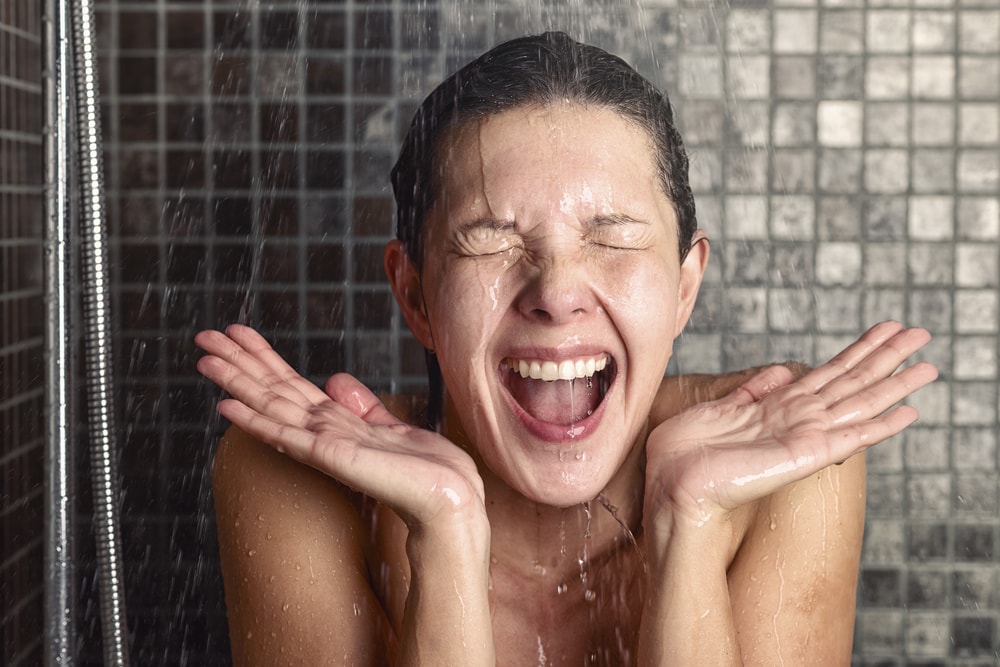
Are you a hot shower person or a cold shower person? We shiver to think of showering in cold water early in the morning. But when it’s a hot, sweltering day, nothing sounds better than a cold and refreshing shower. Showers are not only cleaning and cleansing, they could also help promote bodily functions, depending on the temperature.
Here's how your body reacts to hot and cold showers.
1. Hot showers
There is nothing like a warm shower at the end of a long day to rejuvenate the soul. Here’s how your body reacts to hot showers:
Relief for Sore Muscles: Similar to the effect of a hot pack over sore muscles, a hot shower can help to relieve sore muscles, muscle tension and knots. The hot water also helps to increase blood circulation in the body that can considerably ease pain, stimulate healing and reduce inflammation.
Clears Sinuses: Have your nose blocked? The steam from a hot shower can act as a natural decongestant to relieve symptoms of a cold, as hot steam moisturizes the nasal passage.
Better Skin: Hot showers help to open the pores of the skin and therefore help in softening it and making it healthy. Some people recommend taking a hot shower to open the pores of the body, to cleanse the skin and unclog pores – similar to the function of steaming or a hot towel before a facial.
2. Cold showers
The thought of a cold shower early in the morning is enough to keep some people in bed. But sports science studies some traditional practices say that cold showers could actually prepare you better for the day ahead.
Skin and Hair: Cold water has the opposite effect of hot water when it comes to pores, closing the pores or scalp and tightening it. It is believed that this helps to lock in moisture for the skin and also prevents dirt from getting in. For the head, cold water tightens the scalp increases the capacity of the hair follicles to grip the scalp and thereby makes the hair stronger.
Improves Immunity and Circulation: Besides benefiting your skin, cold showers also help with better blood circulation. When cold water touches the skin, blood vessels constrict and circulation focuses on the vital organs.
Speeds Up Muscle Recovery: Sportsmen who immerse themselves in ice baths believe it helps to minimize inflammation and promotes faster muscle recovery. Just as an ice pack constricts blood vessels and numbs nerve endings, a cold shower could provide localized pain relief.
Hot or Cold?
Since both kinds of showers deliver its own unique benefits, which would be best for you? You can stick to your preferred temperature, but there are certain instances where one would be better than the other.
Got insomnia? Get into a warm/hot shower
Having trouble sleeping? Taking a warm shower or bath at night not only relaxes your body, but also adjusts your body temperature. When you come out of a warm shower into a cooler bedroom, your body temperature, heart rate and breathing drops, signalling your body that it's time to rest.
Don't aggravate acne with hot showers!
While hot showers help to unblock pores, it’s worth noting that it could aggravate acne problems. Acne happens when there is too much sebum (oil) on the skin. Although a hot shower removes sebum, the removal also triggers the body to produce more sebum after the shower. If you suffer from acne, it is advisable to take cold showers to help sebum control and prevent new breakouts.
Relief cramps with a warm shower
While there is nothing harmful about taking cold showers when menstruating, a warm shower is better in helping the muscles to relax, thereby alleviating cramps – just like how a hot water bottle helps.
Hot & cold after a workout
While professional and amateur sportsmen engage in ice baths after a workout to help muscles recover faster, you could try alternating between hot and cold showers. Some experts believe that alternating between hot and cold shower after a workout helps to encourage better blood circulation and detoxification.
The above articles are intended for informational purposes only. AIA accepts no responsibility for loss which may arise from reliance on information contained in the articles.
https://home.howstuffworks.com/garlic10.htm
https://www.livestrong.com/article/171913-benefits-side-effects-of-garlic-leaves/
https://www.healthline.com/nutrition/11-proven-health-benefits-of-garlic
https://www.ncbi.nlm.nih.gov/pubmed/25386977
https://www.livestrong.com/article/268286-benefits-of-garlic-powder/
https://www.mmmgarlic.com/garlic-health-benefits/eating-raw-garlic-five-easy-ways/
https://www.sharecare.com/health/inflammation/article/anti-inflammatory-diet-tip-garlic
https://www.livestrong.com/article/521817-how-to-eat-raw-garlic-not-have-garlic-breath/